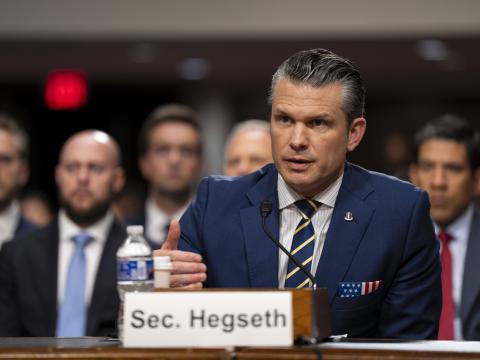COUNTERINTELLIGENCE
The publication of Christopher Andrew’s Defence of the Realm, the authorized history of
It was not always so. From the 1920s through the 1960s counterintelligence was a peer mission, and at times it may have been the dominant element in American security activity. A substantial structure, represented by the FBI and service counterintelligence components, existed long before the
This all changed, as did so much else, with
At some level, the rebalancing of this debate should have begun in the 1980s, when Alan Weinstein’s Perjury offered a persuasive argument that at least in the case of Alger Hiss, Soviet espionage had been a reality. The release, foolishly belated, of the Venona files in the 1990s has made it clear that for years the public debated a false choice: either the
But the damage to counterintelligence (and domestic intelligence) had been done. From the 1970s to 2011, intelligence in the
A few years ago, with the creation of a National Counterintelligence Executive, the prognosis seemed to improve. Within a year, NCIX sponsored a major conference to bring together the counterintelligence community. As a speaker at that conference, I recall many of the participants introducing their remarks by noting either “We all know CI has been a career killing specialization” or “We all know what it’s like to be treated as the equivalent of an internal affairs bureau [of a police department].” Along with coffee, NCIX should have considered serving anti-depressants during the breaks.
Difficult as it has been, however, NCIX and its activities have produced real if incomplete progress. Perhaps as important, cultural tides may have shifted. The threat from the
This conversation will cut across the old “foreign versus domestic” lines in ways that make the similar revisions of the immediate post-9/11 period pale in comparison. Director of National Intelligence Dennis Blair has now raised, rightly and clearly, the issues associated -- in terrorism, in cyber issues, and in virtually every other national security issue of importance -- in rethinking the “
What can intelligence professionals concerned do to help this process? First of all, they can embrace the idea that counterintelligence, security, and domestic intelligence are not some unpleasant tasks assigned to a few employees who don’t mind damaging their careers and reputations. It is an integral part of the intelligence process, one that requires the interest and attention of everyone in the profession. (And with colleagues in law enforcement.)
Second, they can consider redressing decades of neglect by advancing a major research program for counterintelligence and security. These are not, as sometimes perceived, lower level administrative functions, but responsibilities of the highest order, conceptually, operationally, and organizationally. The vulnerability of American industrial and commercial information to espionage and sabotage should make public/private partnership in this effort natural and critical.
Third, they can realize that counterintelligence assignments should be encouraged on the part of the best and brightest in the profession. Above all, these must be men and women of the highest integrity and exquisite judgment, even within a profession that values integrity and judgment across the board. Too many of the wounds inflicted on American intelligence in recent years, even since 9/11, have been self-inflicted. Getting expanded authority from Congress in areas that touch on civil liberties and then abusing those authorities is not a formula for success. At the state and local level, public acceptance of counterintelligence is not helped when, for example, agencies place the names of death penalty advocates on terrorist watch lists.
Fourth, they need to take a deep breath and realize that this discussion will be a public one, with the equities of secrecy and security balanced against the American preference for transparency in government. This is never an easy balance to achieve, and the outcome (or interim outcomes) always leaves all parties at least slightly unhappy. James Madison would expect no less.
With that last thought in mind, a renewed American counterintelligence will almost certainly involve the reality of oversight, perhaps from some vehicle beyond congressional oversight committees. Police forces, after all, need internal affairs bureaus. Honest officers may not welcome such scrutiny, but they must acknowledge the necessity of it, along with, in many forces, civilian review panels. We should not be surprised if one result of the public discussion described above concludes with a recommendation for similar oversight of security and intelligence, at least as they apply domestically.
A year ago, Jennifer Sims and Burton Gerber of Georgetown University published Vaults, Mirrors & Masks: Rediscovering American Counterintelligence. One-fifth the length of Defence of the Realm, it may reflect the state of counterintelligence in American national security thinking. But it’s a start, and an important one. More remains to be done.
William Nolte, chairman of the AFCEA Intelligence Committee, is research professor at the School of Public Policy, University of Maryland




Comments